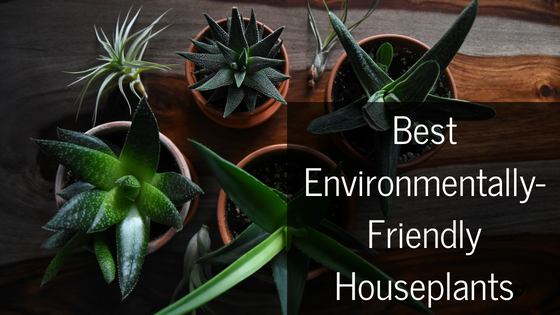Best Environmentally-Friendly Houseplants

The stale air in your house isn’t just a nuisance, but, according to EPA, it can also affect your health. Fortunately, there is a simple solution to improving the air quality: a few houseplants.
A Brief Overview
Items that we use on a daily basis can be sources of pollutants. Furnishings, cleaning products, mold, and dust can drastically affect the air quality of your home. Even outdoor pollutants such as pollen or even a bit of car exhaust can make its way in.
However, there are certain houseplants that are made for filtering out pollutants and toxins from the air. Best of all, they are extremely easy to keep and hard to kill.
Air-filtering Houseplants
While these plants are hard to kill, each one likes different conditions. Always check the tags to make sure how much sun and water your new plant wants.
Aloe
Aloe plants are very interesting and should go first on every list. Not only do they filter out formaldehyde, but their leave can be clipped and cut open to collect the juice inside it. The aloe juice/gel can be used to create lotions or help heal a burn. Make sure their pot drains well though; they don’t like standing water.
Bamboo Palm
Bamboo is a fun and pet-friendly plant to have around. They are really great at filtering out different pollutants because they can get as tall as 12-ft tall. They love sun or bright light, so a window that gets lots of sunshine will make them happy.
Boston Fern
If you have a room that doesn’t get a whole lot of direct sunlight, then a Boston Fern would love this space. It filters out xylene and formaldehyde. They need at least a good soaking once a month but check their soil every day to make sure it stays moist.
Spider Plants
Spider plants are extremely hardy and love indirect sunlight, making this a really good plant for beginners. They will even sprout flowers that can grow into baby spider plants. They filter out formaldehyde and xylene.
Garden Mums
According to NASA research, garden mums are filtering champions, able to grab ammonia, formaldehyde, benzene, and xylene from the air. Plus, when they are done growing, you can either keep them inside or plant them outside in a garden bed.
From RomeoDiBattistaJr.co